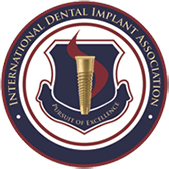
There are many different oral health problems that people can facedue to circumstance or develop with age, and while most people are familiar with cavitiesand gingivitis, there are plenty of other issues that an oral health professional may have to address.
One of these issues ismissing teeth.
The debate between two tooth-loss solutions, dental implants and dentures is growing as technology advances in the dental care industry. On the surface, both are used to correct issuescreated by one or more missing teeth; however, they also have their pros and consthat everyone should understand before making a decision.
An Overview of Dental Implants
Dental implantsare often used to help people correct issues caused by missing teeth. In some cases, someone could be born missing one or more teeth. In other cases, someone could lose one or more teeth due to a traumatic accident or tooth decay.There are many benefits that people can enjoy with a dental implant.
A dental implantis placed into the jaw bone without causing damage to the surrounding teeth,so when someone gets a dental implant, it feels and functions like your natural teeth.
Since dental implantsare fixed comfortably in the mouth, they cannot fall out; and if cared for properly, they can last a lifetime. Similarly, the dental implant crown can last up to 15-20 years if properly cared for.
The decision to place a dental implant can also help someonerestore their normal chewing ability, while other tooth-replacement options may lower this ability.Dental implants need to be taken care of just like a typical tooth.
The Pros of Dental Implants
- Natural looking
- Stops bone loss
- Fixed (non-removable)
- Comfortable
- Doesn’t damage healthy, adjacent teeth
- Becomes the strongest tooth in your mouth
- Not susceptible to further decay or gum disease
- Most secure and stable option
The Cons of Dental Implants
- Higher Fee
- May take longer to complete
- Expensive if you have many missing teeth
Understanding the Dental Implant Procedure: Steps and What to ExpectThe Procedure
When someone gets a dental implant placed, it is normal for people to be concerned about the procedure. It is important for everyone to know thatdental implantsare a common procedure; and oral health professionals, including the doctors at Modern Family Dental Care, are trained extensively on how to place these.
In fact, Dr. Tajhas trained with top doctors from around the world, is a Diplomate of the International Dental Implant Associationand a top implant provider in the U.S.
The first step is making sure that someone has the jaw strength and surface area necessary to hold a dental implant. It is vital for the jaw to be as strong as possible so that the implant grafts well to the jaw.
After this, there must be a gap large enough to handle a tooth implant.In some cases, people could require braces to move the teeth around so that there is room for the implant itself.
After this, the porcelain cap must be made to match the surrounding teeth. There are lots of different shades and everyone mustmake sure that they find the right shade to match their teeth.In some cases,people could have a whitening procedure performed to help improve the look of their smile.
Once this is done, the individual will come in for the procedure day. A local anesthetic is used to numb the area.Then, an incision is made in the gums to reveal the jaw. After this, a drill is used to place the titanium screw in the jaw.
Once this is done, the healing cap is placed on top of the screw.Then, gum tissue grafted over the implant site. It will take some time for the gum tissue to heal and for the implant to take root.
After this, your dentist can place the porcelain crownand most people are able to eat and drink with the implant as they would with a regular, native tooth.
An Overview of Dentures
In contrast to dental implants, denturesdo not require a surgical procedure.They do not require local anesthesia or an implant to be screwed into the jaw bone. Therefore, dentures are an appropriate choice for many people, particularly if they are missing lots of teeth, making the possibility of receiving multiple implants not feasible.
Dentures can be helpful because they help people restore the architecture of the smile, restoring their self-confidence, and can also help people chew again – although at a lower chewing capacity.
On the other hand, dentures do require special care. Some people might feel like dentures are a bit unnatural. They can slide around and cause some discomfort for the individual wearing them. Furthermore, some people could require an adhesive to keep the dentures in place, which could be irritating.
There are multiple types of dentures to consider,such as partial dentures, implant-anchored dentures and overdentures,so make sure to analyze the pros and cons of each option.
Partial Dentures
A removable partial denture is a cosmetic tooth replacement option for people missing one or multiple teeth.The design and functionality is like traditional dentures, but they are designed to only replace some (not all) of your teeth.
Since the mouthpiece is removable, it can cause irritation and discomfortfor some users who are prone to slippage. Additionally, removable partial dentures can lead to bone loss and potentially more tooth loss. The clasps that grab on to your teeth to hold the dentures in place can harm your healthy teethdoing more harm than good.
The Pros of Partial Dentures
- Most economical
The Cons of Partial Dentures
- Uncomfortable
- Can irritate gum
- Moves and shifts when eating
- Food gets trap causing bad breath
- Clasps wear down adjacent teeth leading to more tooth loss
- Needs to be taken out at night
- Life Span is 5 -10 years
- Bone loss continues
- Diminished function
- Removable
Implant-Anchored Overdentures
Implant-anchored partial dentures area good choice for adults who are missing more than one tooth,but still want to recapture the strength and look of their previous teeth. While the implants sit in the jaw, thesesnap-in dentures are removable and should be taken out every night.
The Pros of Implant-Anchored Overdentures
- Stops bone loss
- Increased function & comfort
- Decreased gum irritation
- Increased stability
- No visible clasps
- Existing partial denture can be used
The Cons of Implant-Anchored Overdentures
- Removable
Removable Dentures
Partial dentures are a tooth-replacement option for patients who are missing all their teeth.These dentures sit on top of your gumsand can lead to progressive bone loss. Not only is this option uncomfortable due to slippage and poor tasting adhesives, it can also affect your speech, cause pain when biting, and restrict your everyday pleasure of eating.
The Pros of Removable Dentures
- Economical
The Cons of Removable Dentures
- Uncomfortable
- Can irritate gum
- Moves and shifts when eating
- Food gets trap causing bad breath
- Clasps wear down adjacent teeth leading to more tooth loss
- Needs to be taken out at night
- Life Span is 5 -10 years
- Bone loss continues
- Diminished function
- Removable
It is important to speak with an experienced oral health professional about dentures because they can make a significant difference in someone’s quality of life.
Our Recap and Recommendation
Ultimately, both dental implants and dentures have their pros and cons. It is important for everyone to think about both dental implants and dentures before deciding which treatment to choose.
Depending on your unique situation, you may or may not be a qualified candidate for one tooth-replacement treatment over another. Making this decision can be challenging and it is a good idea to sit down and meet with an experienced oral health professional before making a decision.
When considering the consequences and benefits of dental implants compared to dentures, our team unanimously agrees that dental implants are the obvious choice for most patients.Our goal is to give our patients a beautiful, healthy smile.
To do that, we want to recapture the look and functionality of their missing teeth, so they can move forward, without restriction, in their everyday lives.
There are lots of issues to talk about and the friendly professionals at Modern Family Dentalare happy to help. Contact usto speak with a friendly representative today!





